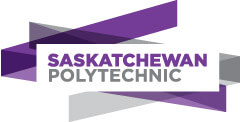About Library And Information Technology Diploma in Saskatchewan Polytechnic
Program Overview
Today’s library technologist is tech-savvy, socially engaged and passionate about life-long learning. It’s a great career for anyone interested in literacy, learning and innovation.
Library techs are in demand—because libraries have become the go-to place for everything from traditional books to e-books, multi-media and online resources.
Saskatchewan Polytechnic's two-year Library and Information Technology diploma program has been developed in accordance with the Canadian Library Association Guidelines to address ongoing advances in technology and changing library user needs. Offered at our Saskatoon campus, the program prepares you to support librarians in any type of library—or to manage day-to-day operations on your own in a small library.
You’ll take a variety of introductory academic courses to familiarize yourself with a wide variety of subjects, from world history to literature. You’ll discuss the impact of new technologies, the political and economic factors impacting information sharing, the benefits and risks of digital storage, and more. Through lectures, labs and hands-on projects, you’ll develop knowledge and skills in:
- acquisitions, circulation and interlibrary loans
- archives and records management
- computer-based and traditional library management
- database searching and reference research
- descriptive and subject cataloguing
- programming and public relations
- reader assistance
- website design and social media
Q & A Sessions
Library technologists get asked a lot of questions. Your assignments reflect the kind of requests you might get, and you’ll learn to use a wide range of resources to find answers.
In-Library Practicums
Work experience is an integral part of your learning. You’ll participate in 2 three-week practicums, one in a Saskatoon public library, one in another community library. It’s a chance to apply theory to practice, and class projects to a real working environment.
Career and Salary Information
Your Career
The potential job market for library technologists is bigger and broader than many know. There are career opportunities in municipal public libraries, regional public libraries, northern libraries and the Saskatchewan Provincial Library. There are also jobs in university, polytechnical and regional colleges, public and separate school divisions, health regions, government departments, archives, research centres and private businesses.
You could work on the front line helping library users or behind the scenes in a technical capacity. Although a diploma does not qualify you as a librarian, it does open doors to working in supervisory or managerial roles in library service units or small libraries.
For more information, contact the Student Employment Services at the Saskatchewan Polytechnic campus nearest you.
Academic qualification equivalents:
- Grade 12 with a minimum 60% in each of the following subjects: English Language Arts A30, English Language Arts B30, Chemistry 30 and Pre-Calculus 30
English language requirements (one of the below):
- IELTS : Overall minimum score of Band 6.5 with a minimum score of 5.0 in each component.
- TOEFL : An overall minimum score of 81 on the Internet-based Test of English
- PTE : A minimum score of 63 with minimum component scores of 50.
Saskatchewan Polytechnic Highlights
| Type |
Public |
| Campus Setting |
Urban |
| Application mode |
Online and Paper mode available |
| Graduation rate |
62% |
| Acceptance rate |
96% |
| Number of Students |
16,008 |
| Overall cost of living |
14,762 CAD |
| Academic calendar |
Semester based |
| % of International students |
6% |
| Number of campuses |
4 |
| Medium of instructions |
English |
| Undergraduate Tuition fee |
14,044 CAD |
| Postgraduate Tuition fee |
16,426 CAD |
| Cost of living |
694 -1147 CAD per month |
Saskatchewan Polytechnic First-Year Tuition Fees And Living Expenses For International Students
Over the course of one academic year, the following graph displays tuition and living expense estimates in Canadian currency for one full-time international undergraduate student. Please bear in mind that these are only estimates; actual pricing will vary depending on your needs and preferences. Other factors to consider include currency changes, visa and study authorization fees, and vacations back home.
- For international students, the overall fees will range from:-
| Particulars |
Amount |
| Administrative fees |
50.00 to 150.00 CAD |
| Application fees |
150 CAD |
| Student association fee |
95.00 to 445.00 CAD |
| Non-refundable fee at the start) |
1,000 CAD |
| Tuition fee range |
6,195 to 18,089 CAD |
| Laboratory fee |
100.00 to 409.00 CAD with no fees for
some courses which do not have a lab service. |
| Books and Supplies |
200 to 3,725 CAD |
| Technology fee |
50 to 146 CAD |
- For a student of Saskatchewan Polytechnic the required financials (Cost of Attendance) can be:-
| Description of Financials |
Amount in CAD |
| Average cost of tuition |
11245.77 CAD |
| Cost of living |
10799.39 CAD |
| Application fee |
150 CAD |
| Estimated total (per year) |
22,195.16 CAD |
